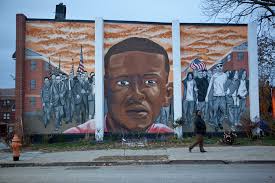Topics:
Search for topics or resources
Enter your search below and hit enter or click the search icon.
March 7th, 2018 | 2 min read

This is a fascinating essay from Cedric Johnson examining the history of the Black Panthers and comparing its political activism to the Black Lives Matter movement:
The racial justice frame simply does not adequately explain the current crisis of police violence, in which blacks are overrepresented but not the majority of victims. In 2015, there were 1,138 people killed by police in the United States, and of that number 581 were white, 306 were black, 195 were Latino, 24 were Asian or Pacific Islander, 13 were Native American, and the race/ethnicity of the remaining 27 was unknown. Rather than prompting some version of “all lives matter” post-racialism, these facts should encourage greater discernment on the part of those who want to create just forms of public safety. The unemployed, the homeless, and those who work in the informal economy or live in areas where that economy is dominant are more likely to be regularly surveilled, harassed, and arrested. Black Lives Matter activists posit universal black injury where, in fact, the violence of the carceral state is experienced more broadly across the working class. What is to be gained from adhering to political slogans that exclude certain victims and truncate the potential popular base for progressive reforms?
It’s long but worth a read — you’ll learn something no matter where you stand.
I disagree with his main thesis for two reasons. First, I think class-based political organization is liable to suffer from its own fractures. (For example, consider how various Democrat Socialists of America chapters are going out of their way to exclude anyone opposed to abortion from their coalition!) Secondly, I think identity politics in general are a good thing because our pre-political identities will inevitably shape our public expressions and political values, so it’s better to be honest about that than to treat the unnatural liberal identity as normative. Our commitments as Christians, for example, shape the way in which we approach politics and advocate for specific carve-outs, so I think that our Christian identities ought to play out with a sort of “identity politics”. But that’s another subject for another day.
Matthew Loftus teaches and practices Family Medicine in Baltimore and East Africa. His work has been featured in Christianity Today, Comment, & First Things and he is a regular contributor for Christ and Pop Culture. You can learn more about his work and writing at www.MatthewAndMaggie.org
Topics: